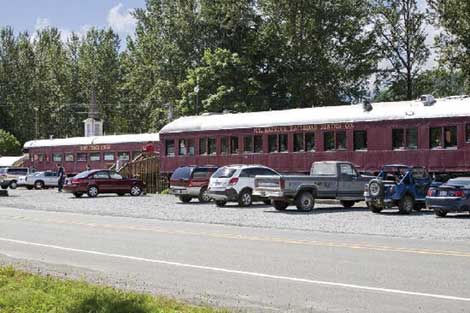“And in the end it’s not the years in your life that count. It’s the life in your years.†Abraham Lincoln
When the 2015 Washington Legislature convenes on Jan. 12, the development of a state budget will likely create one of the most difficult sessions in decades. On the table are the state Supreme Court-mandated McCleary obligations and budget requirements to fulfill voter-approved Initiative 1531. In total, the Legislature needs to find $3.28 billion in 2015-17 and an additional $4.9 billion for 2017-19. Funding education is important, and equally important is the protection of the social safety net and policies impacting our aging population.
The United States population is growing older and more diverse as the first baby boomers began reaching retirement age in 2011. Over the next 15 years, the number of people over the age of 65 will surge and, each day, thousands more will reach retirement age. For Washington, that means by 2030, one out of five Washingtonians will be age 65-plus. It is time to prepare for this huge demographic shift.
AARP recommends smart budget and policy measures to take pressure off future state budgets and create a more age-friendly society that helps people maximize their lives. AARP will work with the legislature to support:
Long-term care
Most people are uninsured for long term care. Medicare covers only short-term time limited services, private long term care insurance is expensive or non-existent and Medicaid requires people to be impoverished to qualify for the services they need. To help families struggling to care for loved ones, the 2015 Legislature should:
• Support a study on alternative public and private long term care financing options.
• Ensure money generated by the Community First Choice Option supports the Family Caregiver Support Program.
• Build support for passage of the CARE Act’s goals including identification and training of family caregivers by hospitals to prevent costly hospital readmissions in 2016.
Financial Security: Encourage individual savings
Washington is facing a retirement savings crisis. A recent National Institute on Retirement Security study found that the average household had only $3,000 in retirement savings. Such low savings rates endanger the financial security of individuals as they retire, but also the state’s Medicaid budget, which could explode if personal savings rates do not improve. To help people prepare for a secure retirement, the 2015 Legislature should:\
• Encourage saving by making it easier for small businesses to offer workplace retirement and savings accounts.
• Oppose reductions to promised benefits for current state pensioners. Oppose moving to defined contribution schemes, and retain traditional defined benefit pensions for future retirees.
Vulnerable Adults: Strengthen protections
Reports to Adult Protective Services (APS) of adult abuse, neglect and financial exploitation are rapidly increasing. In the past five years, investigations have increased by 25 percent, while APS staffing grew by just 9 percent. To ensure a timely and effective response, the 2015 Legislature should:
• Increase penalties for crimes against and financial exploitation of vulnerable adults.
• Reform APS to ensure improved support for victims and training for investigators.
• Fully fund the partners in abuse response, including the Long Term Care Ombudsman and the Office of Public Guardian.
In 2013, AARP Washington advocated for the creation of a Joint Legislative Executive Committee on Aging and Disability to set strategies for the aging population. We will continue to support this key committee.
For more detailed information about these and other issues of importance to older adults and their families, visit www.aarp.org/wa
Cathleen MacCaul, who wrote this article, is AARP’s Washington advocacy director.
